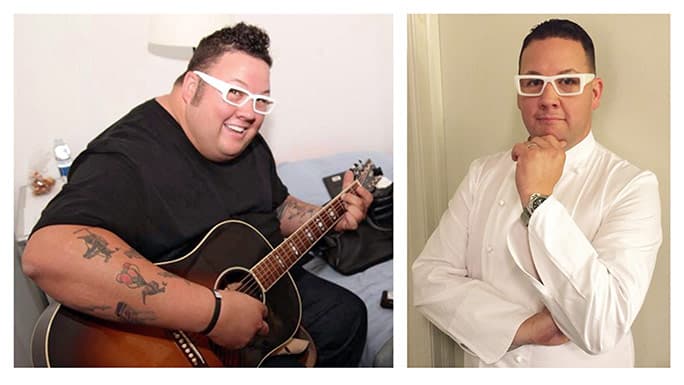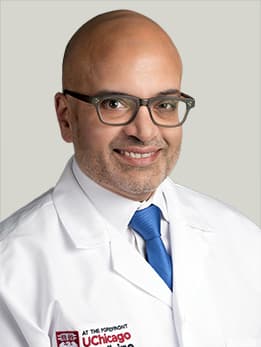Weight loss surgery gives chef Graham Elliot new perspective on food

More than one third of Graham Elliot—the nationally known chef and judge on the Fox Network's popular competitive-cooking show, "MasterChef"—has gone missing.
People become chefs because they appreciate food. Elliot's appreciation, and his waistline, kept pace with his culinary reputation. He joked that "no one trusts a skinny chef." By 2013, however, his trustworthiness had grown a little too apparent. No one would accuse him of skinniness. He weighed almost 400 pounds.
The weight brought health problems. He had inherited a family history of heart attacks and strokes. The excess weight piled on new issues.
"I was suffering from hypertension, sleep apnea, gout, constant aches and pains," Elliot said. "I was physically unable to do things a father, husband and parent should be able to do. I was headed for disaster if I didn't make tough decisions, take drastic measures."
Most frustrating for him was his inability to run and play sports with his three young sons (ages 7, 3, and 18 months). After years of testing various standard and imaginative diets, working with a dozen personal trainers and joining multiple gyms, he knew he had to make a change.
Making the commitment
Elliot, 37, had considered weight loss surgery, but was hesitant to take the next step. He asked a friend, fellow Chicago chef Grant Achatz, who spoke highly of his care at the University of Chicago Medicine. "So that was where I focused," Elliot said.
We had exhausted all options — Graham Elliott's wife, Allie Elliott.
At his initial appointment he met Learn more about medically supervised weight loss options
"I thought it would take two or three years to do this," he told a reporter from People Magazine. He expected to lose just 60 or 70 pounds the first year. Losing up to 100 pounds would be more typical, according to Prachand, associate professor of surgery, director of minimally invasive surgery, and surgery quality chief at the University of Chicago Medicine. But Elliot was not typical.
He did his research, Prachand said. He knew all of his options. He has his family to support and motivate him and he has been "absolutely committed to making the necessary lifestyle modifications that allow his procedure to work most effectively."
There are several duodenal switch (DS), a procedure that combines a gastric sleeve with a realignment of the digestive tract that helps patients limit their food intake and decreases calorie absorption.
"The duodenal switch is generally the best option for patients with a body-mass index of 50 or more plus metabolic problems associated with severe obesity," Prachand said. "Graham technically fit those criteria, but as with all of our patients, we had to carefully consider his circumstances, particularly as they related to his career."
Duodenal switch patients lose some of their capacity to process and absorb dietary fats. Even small servings of fatty foods can trigger cramps, bloating, and other intestinal distress.
"Obviously this could interfere with his role as a chef and as a judge of dishes created by contestants on Master Chef," Prachand said. Multiple small tastings is central to Elliot's work.
Gastric sleeve surgery
So Prachand suggested a less extensive operation, called the gastric sleeve, which is one component of the DS. A gastric sleeve makes the stomach about 80 percent smaller, the size and shape of a small banana, but it doesn't interfere with nutrient uptake or digestion.
"It was a reasonable way to start," Prachand said "If it wasn't sufficient by itself; we could follow it with the rest of the DS at a later time."
"Fortunately, Elliot turned out to be an optimal patient," Prachand said. Surgery went smoothly. Elliot recovered quickly and has since been a role model for healthy eating and exercise.
Once a patient commits to surgery and is encouraged by their initial progress, they find it much easier to engage in long-overdue lifestyle changes, Prachand said. Elliot began exercising at least every other day, including longer and longer runs.
Learn more about the different types of bariatric surgery
"The key is for movement and exercise to become an inherent and enjoyable part of what we do in our everyday lives, not a set-aside item that is 'nice to do'," Prachand said.
Changing eating behavior
Elliot has changed the way he eats at home and on the job. No more late-night burgers and Cheez-Its. Now it's salmon or chicken, with salad or vegetables. "I miss ice cream," he admits, but his desserts are more likely to include fruit with cottage cheese, or apple slices dipped in peanut butter.
"I now look at food as fuel and focus on my protein intake," he said. "I'm in love with 'pure' flavors, things that are natural and delicious, minimally fussed with, that showcase the season. I combine that with portion control."
His dressing room on the "MasterChef" set is stocked with almonds and dried fruit. People Magazine published a portrait of Elliot's refrigerator, filled with fat-free yogurts, granola, fruits and vegetables, as well as almond and pumpkin butters and a jar of mayonnaise. A messy ketchup bottle gave the scene some credibility.
He has eliminated almost all bread, pasta, soda and beer, but he still has a sweet tooth. He keeps bananas in the fridge, to remind him, in difficult moments, just how small his stomach has become.
His BMI is down to the 27-29 range, overweight but not obese, and still falling. "When you start out above 50," Prachand said, "29 is fantastic."
"We want patients to lose fat and preserve muscle, bone and other lean body mass," Prachand explained. "Health isn't just about weight or BMI. It's also about what your body is capable of at the new weight." Elliot can now do push-ups and even a few pull-ups. He has increased his cardiovascular endurance and intensity.
"I try not to give weight loss patients precise goals like a certain weight or a specific BMI," Prachand said. "If they miss a single target, it can sap their initiative. But Graham is well into the range where we want him to be right now. He's motivated to stay on top of it and he's really taken to heart the concept of functional fitness rather than a single number on the scale or on a blood test as a measure of health."

Vivek Prachand, MD
Dr. Prachand is an expert in minimally invasive abdominal surgery. He is one of the only surgeons worldwide who regularly performs the laparoscopic duodenal switch for obese patients.
See Dr. Prachand's Bio